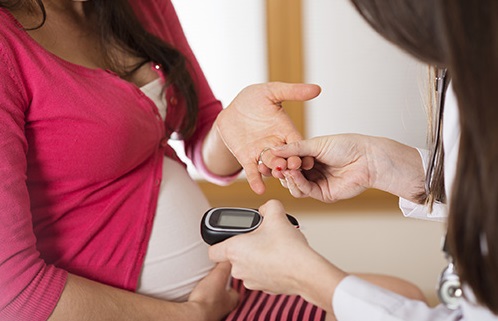Introduction:
Being pregnant can be a beautiful and exciting time, but it can also come with its challenges, including getting sick. Catching a cold while pregnant can be particularly frustrating, as many common cold medications are unsafe during pregnancy. However, there are some options available that can help relieve your symptoms without putting you or your baby at risk. In this article, we’ll discuss common cold symptoms during pregnancy, how to tell if it’s a cold or the flu, what to do if you get a cold while pregnant, and safe medication options, including acetaminophen, cough medicine, nasal sprays, and antihistamines.
Is it safe to take cold medicine while pregnant?
The short answer is that it depends on the type of cold medicine you’re taking. Some cold medicines are safe to take during pregnancy, while others are not. The most important thing you can do is talk to your doctor before taking any medication. They can help you determine which cold medicine is safe for you and your baby.
Read More: Which Cold & Flu Medication Is Safe to Take During Pregnancy?
Safe cold medicines during pregnancy
Acetaminophen: Acetaminophen is a common pain reliever and fever reducer. It’s considered safe to take during pregnancy and is often recommended by doctors for cold and flu symptoms.
Saline nasal spray: Saline nasal spray is a safe and effective way to relieve nasal congestion during pregnancy. It’s a simple solution of salt and water that can be sprayed into the nostrils to help clear out mucus.
Honey and lemon tea: Honey and lemon tea is a natural remedy for cold and flu symptoms that can be safely consumed during pregnancy. The honey helps soothe a sore throat, while the lemon provides a dose of vitamin C.
Unsafe cold medicines during pregnancy
Aspirin: Aspirin is not recommended during pregnancy, especially during the third trimester. It can increase the risk of bleeding and other complications.
Ibuprofen: Ibuprofen is also not recommended during pregnancy, especially during the third trimester. It can increase the risk of bleeding and other complications.
Decongestants: Decongestants, such as pseudoephedrine, should be avoided during pregnancy. They can cause problems with blood flow to the placenta, which can harm the baby.
Antihistamines: Some antihistamines, such as diphenhydramine, are considered safe during pregnancy, but others should be avoided. Always check with your doctor before taking any antihistamine.
Read More: Natural Relief: Home Remedies for Acid Reflux during Pregnancy
Tips for managing a cold while pregnant
In addition to taking safe cold medicines, there are other things you can do to manage your cold symptoms during pregnancy:
- Get plenty of rest: Rest is important for your overall health, but it’s especially important when you’re pregnant and sick.
- Stay hydrated: Drinking plenty of fluids can help thin out mucus and relieve congestion.
- Use a humidifier: A humidifier can help moisten the air and make it easier to breathe.
- Wash your hands: Washing your hands frequently can help prevent the spread of germs.
- Avoid close contact with others: Try to avoid close contact with others who are sick, especially during cold and flu season.
Common Cold Symptoms During Pregnancy:
Pregnancy can weaken the immune system, making you more susceptible to catching a cold. Common cold symptoms include:
- Runny or stuffy nose
- Sneezing
- Sore throat
- Coughing
- Headache
- Mild fever
Is it a Cold or the Flu?
It’s important to know whether you have a cold or the flu, as the flu can be more serious during pregnancy. Flu symptoms tend to come on more suddenly and include a high fever, body aches, and fatigue. If you suspect you have the flu, contact your healthcare provider immediately.
What to Do if You Get a Cold While Pregnant:
If you get a cold while pregnant, it’s essential to take care of yourself and your baby. Here are some tips for relieving your symptoms and staying healthy:
- Rest as much as possible.
- Stay hydrated by drinking plenty of water, clear broths, or warm teas with honey.
- Use a humidifier or take a steamy shower to help relieve congestion.
- Gargle with saltwater to soothe a sore throat.
- Avoid people who are sick.
- Wash your hands frequently.
- Cover your mouth and nose when coughing or sneezing.
- Eat a healthy diet of fruits, vegetables, and whole grains to boost your immune system.
Medications That Are Safe for Pregnant Women to Take for a Cold:
While many cold medications are not safe for pregnant women to take, there are some options available that can help relieve symptoms without harming your baby. It’s important to always talk to your healthcare provider before taking any medication during pregnancy.
Acetaminophen:
Acetaminophen is a pain reliever and fever reducer that is generally considered safe for use during pregnancy. However, you should still use it sparingly and only as directed by your healthcare provider.
Cough Medicine:
Some cough medicines are safe for pregnant women to take, but it’s important to check the label for specific ingredients. Avoid cough medicines that contain alcohol, codeine, or dextromethorphan. Instead, look for cough medicines that contain guaifenesin, which helps loosen mucus or cough drops that contain honey or menthol.
Nasal Sprays:
Nasal sprays can help relieve congestion and stuffiness, but it’s important to choose the right one. Saline nasal sprays are safe for pregnant women to use and can help flush out nasal passages. Avoid nasal sprays that contain decongestants, such as oxymetazoline or phenylephrine, as they can constrict blood vessels and reduce blood flow to the placenta.
Antihistamines and Medications to Avoid During Pregnancy
When you’re pregnant, it’s essential to be mindful of the medications you take, including antihistamines. Antihistamines are medications used to treat allergy symptoms such as sneezing, runny nose, itching, and hives. While antihistamines are generally safe to use during pregnancy, there are some things to consider.
Are Antihistamines Safe to Take During Pregnancy?
Most antihistamines are safe to take during pregnancy. The American College of Obstetricians and Gynecologists (ACOG) recommends using chlorpheniramine, diphenhydramine, and loratadine during pregnancy. These antihistamines are considered category B drugs, which means that animal studies have not shown any risks to the fetus, and there are no adequate and well-controlled studies in pregnant women.
On the other hand, some antihistamines should be avoided during pregnancy. For example, ACOG recommends against using desloratadine (Clarinex), fexofenadine (Allegra), and cetirizine (Zyrtec) during pregnancy. These antihistamines are considered category C drugs, which means that animal studies have shown adverse effects on the fetus, but there are no adequate and well-controlled studies in pregnant women. It’s essential to consult your doctor before taking any medication during pregnancy.
Medications to Avoid During Pregnancy
Aside from some antihistamines, there are other medications that pregnant women should avoid. These include:
- Aspirin: Aspirin is a nonsteroidal anti-inflammatory drug (NSAID) that can cause bleeding in the mother and the fetus, especially if taken during the third trimester.
- Ibuprofen: Like aspirin, ibuprofen is an NSAID that can cause bleeding in the mother and the fetus, especially if taken during the third trimester. Ibuprofen is also associated with an increased risk of heart defects in the fetus if taken during the first trimester.
- Naproxen: Naproxen is another NSAID that can cause bleeding in the mother and the fetus, especially if taken during the third trimester.
- Warfarin: Warfarin is an anticoagulant medication used to treat blood clots. It can cause birth defects, bleeding in the fetus, and miscarriage.
- Methotrexate: Methotrexate is a medication used to treat cancer, autoimmune diseases, and ectopic pregnancies. It can cause birth defects and miscarriage.
- Tetracycline: Tetracycline is an antibiotic that can cause discoloration of the teeth and skeletal abnormalities in the fetus.
- Accutane: Accutane is a medication used to treat severe acne. It can cause birth defects, miscarriage, and premature birth.
Conclusion
Antihistamines are generally safe to take during pregnancy, but it’s essential to consult your doctor before taking any medication. Some antihistamines, such as desloratadine, fexofenadine, and cetirizine, should be avoided during pregnancy. Additionally, pregnant women should avoid aspirin, ibuprofen, naproxen, warfarin, methotrexate, tetracycline, and Accutane. It’s always better to err on the side of caution when it comes to taking medication during pregnancy.














